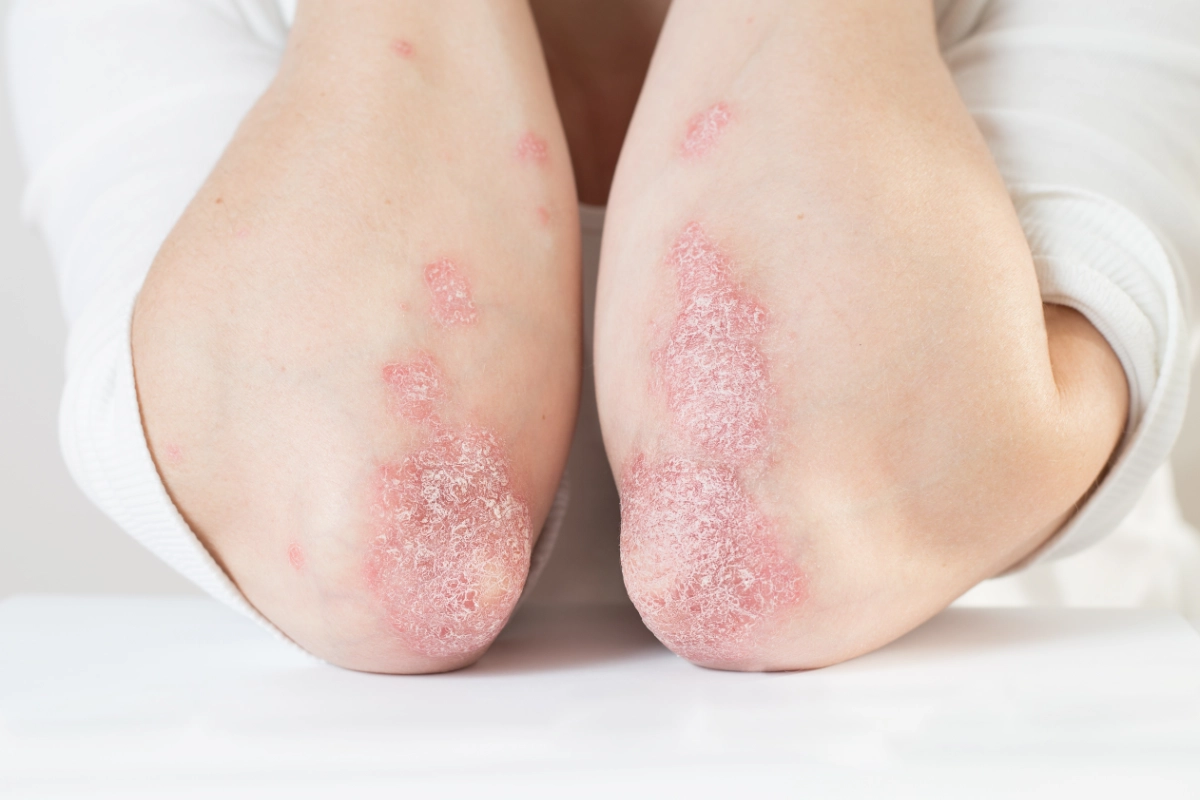
Psoriasis is a chronic autoimmune skin condition that causes the rapid buildup of skin cells. This leads to thick, scaly patches that can be itchy, dry, and sometimes painful. While it most commonly affects the scalp, elbows, knees, and lower back, psoriasis can appear anywhere on the body.
Why Does Psoriasis Happen?
In people with psoriasis, the immune system mistakenly attacks healthy skin cells, triggering an accelerated skin regeneration process. Instead of taking weeks, new skin cells rise to the surface in just days—causing the buildup of plaques.
Several key factors contribute to this response:
- Overactive immune system
- Genetic predisposition
- Environmental and lifestyle triggers
Psoriasis isn’t contagious, but it is a long-term condition that often comes and goes in cycles of flare-ups and remission.
What Increases the Risk of Developing Psoriasis?
While anyone can develop psoriasis, certain factors make it more likely:
- Family history of psoriasis or autoimmune diseases
- Chronic stress
- Smoking and heavy alcohol use
- Obesity
- Certain medications (like beta-blockers or lithium)
- Infections such as strep throat
Understanding Psoriasis Symptoms
The most common form of psoriasis—plaque psoriasis—is characterized by:
- Raised, red patches of skin
- Silvery-white scales
- Dry or cracked skin that may bleed
- Itching, burning, or soreness
- Thickened, pitted, or ridged nails
Other types include guttate, inverse, pustular, and erythrodermic psoriasis, each with its own pattern and severity.
Psoriasis Is More Than Skin Deep
For many, psoriasis goes beyond the skin. It can affect emotional well-being, disrupt sleep, and limit daily activities. Up to 30% of people with psoriasis also develop psoriatic arthritis, which causes joint pain and stiffness.
What Can Trigger a Psoriasis Flare-Up?
Even when symptoms are under control, certain triggers can lead to a flare:
- Stress or trauma to the skin (like cuts or sunburn)
- Cold, dry weather
- Infections (especially strep throat)
- Hormonal changes
- Certain medications
- Smoking or heavy alcohol use
Knowing your triggers—and managing them—can go a long way in reducing outbreaks.
The Good News: Psoriasis Can Be Treated
While there’s no permanent cure for psoriasis, a wide range of treatment options can dramatically reduce symptoms and improve quality of life. These include:
- Topical treatments (like corticosteroids and vitamin D creams)
- Phototherapy (light therapy)
- Systemic medications and biologics
- Lifestyle adjustments
You don’t have to face psoriasis alone. With the right support and a personalized treatment plan, clearer skin and more comfortable days are within reach. Reach out to our team today to explore your options and start your journey toward lasting relief.
